12 stories about journalistic resistance
7- 3.05.2012, 1:38
The U.S. State Department announced an action in support of freedom of speech in the world.
As World Press Freedom Day approaches on May 3, journalists are being silenced around the world. In too many places, journalists are imprisoned, attacked, intimidated, murdered or disappeared for trying to report the news or exercise freedom of expression.
In the coming days, the U.S. Department of State will highlight emblematic cases of these threats to journalists and continue to call on all governments to protect the universal human right to freedom of expression.
 Natallia Radzina, Belarus.
Natallia Radzina, Belarus.
Natallia Radzina, a prominent democratic activist from Belarus, is the editor of the opposition Charter 97 website. Her writing and the Charter 97 website have long been critical of Belarus’ poor human rights record, while calling for respect of international and European human rights instruments. On December 19, 2010, Radzina, along with hundreds of others, including seven opposition presidential candidates, was detained by Belarus security services while covering a post-election demonstrationin Minsk following flawed 2010 presidential elections. She was beaten, jailed, and brought upon politically-motivated charges of “organizing and participating of mass riots.” After 40 days ofincarceration, she was conditionally released pending trial. However, Radzina continued to be harassed and threatened during this period with further imprisonment if she continued her journalistic activities.
In March 2011, Radzina fled Belarus, spent several months in Russia before reaching Lithuania in early August. She received political asylum in Lithuania in September and continues her work from there. Radzina won the Committee to Protect Journalists’ 2011 International Press Freedom Award.
Independent journalists in Belarus continue to face restrictions and limitations on their professional activities.
We call on the Government of Belarus to take the steps necessary to create space forindependent journalists to work in Belarus without fear of violence or persecution.
 Cesar Ricaurte, Ecuador.
Cesar Ricaurte, Ecuador.
Cesar Ricaurte is an award-winning journalist and leading voice in Ecuador supporting the right to freedom of expression. In late 2011, he reported receiving a series of death threats following testimony he presented at the Inter-American Commission on Human Rights on the state of press freedom in Ecuador.
Ricaurte began his career in journalism in 1989 at a magazine on pop culture that he founded called Traffic. Since then, he has published more than 5,000 articles and opinion pieces, including some in El Comercio and El Universo, two of the largest dailies in the country, and has authored a number of books on the media. He currently co-produces the radio show Media Observatory and contributes a weekly column to national newspaper Hoy.
In 2007, Ricaurte and several colleagues founded Fundamedios (Andean Foundation for Media Study and Observation), the premier organization advocating for freedom of expression in Ecuador. It also monitors attacks against the media. In 2011, Fundamedios reported 156 cases of harassment (threats, attacks, or arrests) against journalists or other representatives of the media throughout the year. In Ecuador, the government is using a combination of new regulations and verbal and legal attacks to limit negative coverage of the government and intimidation of independent media outlets into self-censorship.
We call on the government of Ecuador to uphold media freedom as a vital component of a democratic society and to ensure that journalists can operate without fear of threat or retribution.
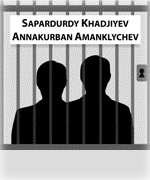 Annagurban Amanklychev and Sapardurdy Khadjiyev, Turkmenistan.
Annagurban Amanklychev and Sapardurdy Khadjiyev, Turkmenistan.
Annagurban Amanklychev and Sapardurdy Khadjiyev are Turkmen human rights activists and media assistants who were sentenced to seven years in prison on weapons possession charges.
At the time of their arrests, Amankylchev and Khadjiyev were working with the Turkmenistan Helsinki Foundation, an organization drawing attention to human rights abuses taking place in Turkmenistan. They were arrested with Khadjiyev’s sister, Ogulsapar Myradowa, a reporter for Radio Free Europe/Radio Liberty, who died after only a few weeks in detention. All three were reportedly subject to torture; Khadjiyev and Amanklychev suffer abhorrent prison conditions.
The two men were reportedly working as assistants to a French film crew in the production of a documentary exploring then-President Niyazov’s authoritarian rule, and Turkmenistan’s failing educational and health systems.
Amanklychev and Khadjiyev are understood to be in the Turkmenbashi high-security detention center in the desert near the Caspian Sea. Credible reports indicate that they have been subject to forced injections, extreme heat, hunger, and thirst, and torture. Access to the prisoners has been limited.
We call on the Government of Turkmenistan to take heed of the recommendations of expert bodies and the international community with regards to this case, including the UN Working Group on Arbitrary Detention, the OSCE, ODHIR, and the Helsinki Foundation, and release Annakurban Amanklychev and Sapardurdy Khajiev. Further, we call on the government to allow the ICRC into the prison system, and to respect all citizens’ fundamental freedom of expression.
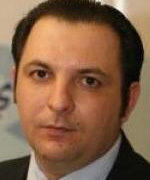 Mazen Darwish, Syria.
Mazen Darwish, Syria.
Mazen Darwish, a leading proponent of free speech in Syria, has been held incommunicado by the Syrian government since February 16, 2012, without charge or trial.
Darwish founded the Syrian Center for Media and Freedom of Expression (SCM) in 2000 with the goal of building a credible organization to monitor threats to freedom of expression in Syria and the region. He also launched the first electronic magazine on human rights in Syria, The Voice, and published the first domestic report on the status of press freedom in Syria. In 2011, the UN granted SCM consultative status, the first NGO from Syria to earn this distinction. SCM’s reporting about daily developments in Syria has become even more valuable during the past year, as international journalists have had limited access to the country. SCM also monitors Internet freedom and Internet access related issues.
Since founding SCM, Darwish was repeatedly interrogated and prevented from leaving the country by the Syrian security services. He was arrested along with 15 other persons, during a raid on SCM’s offices. On April 22, eight of these individuals were charged in military court with “possessing prohibited materials with the intent to disseminate them.” They were subsequently transferred to the central prison of Adra in Damascus. There are reports that the others, including Darwish, are being held incommunicado at a Syrian Air Force Intelligence detention facility in El Mezze, Damascus, and may be subject to torture, abuse, and inhuman treatment while in detention.
We condemn the imprisonment of Mazen Darwish and his colleagues and call for their immediate release. The United States supports the Syrian people in their aspiration to build a new society in which individuals can exercise their universal human rights, including the right to freedom of expression.
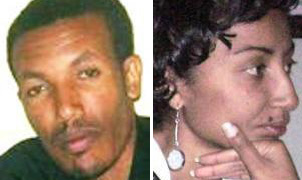 Woubishet Taye and Reyot Alemu, Ethiopia.
Woubishet Taye and Reyot Alemu, Ethiopia.
Woubishet Taye and Reyot Alemu are Ethiopian journalists who were arrested in June 2011 and have been sentenced to 14 years imprisonment on terrorism-related charges.
At the time of his arrest, Woubishet was the deputy editor-in-chief of the Amharic-language Awramba Times, a weekly independent newspaper that recently closed after the editor-in-chief departed Ethiopia citing fear of imminent arrest. Woubishet had started his career as a journalism student at Unity College in Addis Ababa, then worked as a reporter for the now-closed independent weekly, Hadar.
Reyot was a high school English teacher who served briefly as editor of an independent weekly, Addis Press, before it closed. She then wrote a column for the Amharic-language weekly, Feteh.
Both reporters had written articles critical of Ethiopian government policies.
For more than two months after their June 2011 arrests, Woubishet and Reyot were denied access to visitors. In September they were formally charged under the country’s 2009 anti-terrorism proclamation. On January 19, 2012, a court in Addis Ababa found both reporters guilty on terrorism-related charges and for receiving payment for terrorist acts. They were subsequently sentenced to 14 years’ imprisonment and fines.
We call on the Ethiopian government to review the cases of Woubishet Taye and Reyot Alemu, and to ensure that the anti-terrorism law is not used to undermine freedom of expression and independent media.
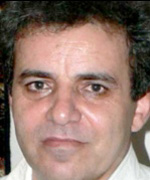 Mohammed Seddigh Kaboudvand, Iran.
Mohammed Seddigh Kaboudvand, Iran.
Mohammed Seddigh Kaboudvand is an Iranian-Kurdish journalist and human rights activist who has been held in Evin prison since July 2007.
In 2003, Kaboudvand founded and served as the managing editor of the weekly publication, Payam-e-Mardom, which covered political, cultural and social issues in Kurdish and Farsi. Iranian authorities suspended the newspaper after 13 issues. In 2005, Kaboudvand became active in the Human Rights Organization of Kurdistan. Throughout, he reported on torture in Iranian prisons, documented cases of human rights abuses against Iranian Kurds, and advocated for a federal system of government.
On July 1, 2007, plainclothed intelligence agents arrested Kaboudvand and charged him with acting against national security and engaging in propaganda against the state. In May 2008, Branch 15 of the Revolutionary Court in Tehran convicted and sentenced him to 11 years in prison. Kaboudvand has reportedly suffered several heart attacks while in custody, and according to family members was in critical condition after launching a hunger strike in February 2012 to protest his treatment in prison. Due to his deteriorating health, prison physicians recommended angioplasty and prostate surgery; his wife and former lawyer have reported that prison authorities have refused such requests for treatment. There have also been reports that he suffered severe dizziness, disruption of speech and vision, and disorders in his limb movements. At times, prison officials have denied Kaboudvand family visits and telephone calls with relatives.
In 2009, the British Press Awards named Kaboudvand “International Journalist of the Year.” He also received Human Rights Watch’s Hellman/Hammett Award.
We call on the Iranian government to release Mohammed Seddigh Kaboudvand and more than 90 other journalists and bloggers who have been imprisoned simply for exercising their right to freedom of expression. We also urge the Iranian government to respect its citizens right to free expression and allow journalists to work in Iran without fear of violence or persecution.
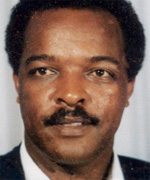 Dawit Isaak, Eritrea.
Dawit Isaak, Eritrea.
Dawit Isaak is a Swedish-Eritrean journalist who has been held incommunicado by the Eritrean government since 2001 without formal charge or trial.
Isaak co-owned Setit, the Government of the State of Eritrea’s first independent newspaper. The bi-weekly paper was one of the leading publications in the country, often reporting on alleged abuses of power. The government detained Dawit Isaak, as well as several other journalists, in September 2001. Their arrests followed the government’s detention of 11 senior politicians, who were part of what was known as the “Group of 15,” after they expressed political opinions critical of the government. That same month the government closed all independent media outlets, including Setit.
The Government of the State of Eritrea released Isaak for a few days in 2005 for medical treatment before jailing him again without charge or trial. His wife and three children do not know the current status of his health or whereabouts. We understand that Isaak’s brother and others filed a 70-page writ of habeas corpus to the Eritrean Supreme Court in July 2011, requesting details on Isaak’s location and a review of his detention. The Eritrean government refuses to release any information about the case.
We call on the Government of the State of Eritrea to release Dawit Isaak and all other imprisoned journalists imprisoned without charge for simply exercising their right to freedom of expression and to lift the ban on the country’s independent press.
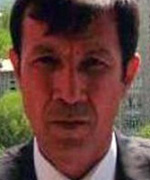 Dilmurod Sayid, Uzbekistan.
Dilmurod Sayid, Uzbekistan.
Dilmurod Sayid is an independent Uzbek journalist who was sentenced to 12-and-a-half years in prison in July 2009 following a closed trial that was conducted in a manner seemingly contrary to Uzbekistan’s international obligations and commitments.
Sayid was a marked critic of corruption. He reported on the abuse of power by local authorities against farmers. He wrote for a number of independent and local pro-opposition websites, including Voice of Freedom, and was an active member of the “Ezgulik” human rights society, one of two registered human-rights organizations in Uzbekistan.
In February 2009, prosecutors in the Uzbek capital of Tashkent detained Sayid on charges of extortion and forgery which were widely believed to be fabricated. In July 2009, a Tailak District Court judge sentenced him in a closed proceeding. He is currently serving his sentence in the Navoi high-security prison in central Uzbekistan.
Mr. Sayid suffers from tuberculosis, a condition that predated his incarceration, but that requires special medication and treatment. Relatives report that Mr. Sayid, who is 5’9,” has undergone significant weight loss and currently weighs less than 130 pounds.
In November 2009, Mr. Sayid lost his wife and six-year-old daughter in a car accident while they were traveling to visit him.
We call on the Uzbek government to release Dilmurod Sayid, to ensure appropriate medical treatment for him immediately while he remains in custody, and to take the steps necessary to create political space for independent journalists to work in Uzbekistan without fear of violence or persecution.
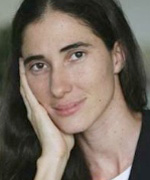 Yoani Sanchez, Cuba.
Yoani Sanchez, Cuba.
Yoani Sanchez is a blogger and technological innovator. She has attracted an international following for her blog, Generacíon Y, which gives readers unprecedented insight into life in Cuba. She has worked to improve the ability of ordinary Cubans to access and disseminate information, and to expand information flow and free expression throughout Cuba. Ms. Sanchez has been credited as the “founder” of the independent Cuban blogosphere, and her work has expanded beyond blogging to training and advising dozens of newcomers to the blogosphere, providing a voice for young Cubans and for established civil society leaders.
Ms. Sanchez is the author of a book, titled Havana Real: One Woman Fights to Tell the Truth about Cuba Today, which chronicles such topics as “the difficulty of shopping; the art of repairing ancient appliances; and the struggles of living under a propaganda machine that pushes deep into public and private life.”
Her work has won numerous awards, including Columbia University’s Maria Cabot prize for journalism, and the Secretary of State’s International Women of Courage Award in 2011. However, she has not been permitted to leave the country to collect these honors. The Cuban government has denied Ms. Sanchez’s request for travel 19 times, most recently in February, when she was granted a visa to Brazil to attend the premiere of a documentary about media freedom.
The Universal Declaration of Human Rights, which was adopted by the United Nations General Assembly in 1948, says that “Everyone has the right to leave any country, including his own, and to return to his country.”
We ask the Cuban government to allow Ms. Sanchez to travel abroad freely, and call on all governments to stop the use of travel bans against journalists or dissidents for exercising their right to freedom of expression.
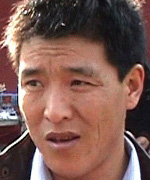 Dhondup Wangchen, Tibet.
Dhondup Wangchen, Tibet.
Dhondup Wangchen is a Tibetan filmmaker who has been detained by Chinese authorities since March 2008 on charges related to his production of a 25-minute documentary titled “Leaving Fear Behind.”
The film is based on 40 hours of footage and 108 interviews that Wangchen conducted over five months. The footage includes candid conversations conducted in China’s Amdo region (located principally in Qinghai province) with Tibetans who expressed views on a range of issues, from the Dalai Lama and the 2008 Beijing Olympics to the human rights situation in Tibetan areas. Shortly after the film was distributed outside of China, Wangchen and his assistant, Jigme Gyatso, were arrested.
Wangchen was reportedly beaten, deprived of food and sleep during interrogations, and held incommunicado for a full year. On December 28, 2009, Wangchen was tried by the Chinese government in secret and sentenced to six years in prison. He is currently serving time in the Xichuan Prison in Qinghai province. Wangchen suffers from hepatitis.
A former businessman, Wangchen has a wife, four children, and elderly parents, all of whom he sent to live in India in the months prior to his filming and subsequent arrest.
We continue to follow closely the situations of those punished for peacefully expressing their political views, and we urge the Chinese government to respect the universal human rights of all Chinese citizens.
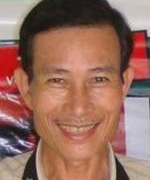 Dieu Cay, Vietnam.
Dieu Cay, Vietnam.
Nguyen Van Hai, better known as Dieu Cay, which means “the peasant’s water pipe,” has been imprisoned in Vietnam since 2008. Dieu Cay is creator of the popular blog “BlogDieuCay” and a founding member of the Free Journalist Club, which was formed in 2008 following Dieu Cay’s call to allow for the creation of private media outlets and promotes freedom of expression and independent journalism. He has written on various issues related to human rights and corruption in Vietnam, including sensitive topics such as land rights and religious freedom.
He has been critical of the Chinese government’s human rights record and policy in the South China Sea, and helped organize a protest to call for a boycott of the 2008 Olympic Games, hosted by China. He also played a prominent role in a widespread bloggers’ campaign to protest Vietnam’s foreign policy towards China.
In April 2008, days before the Olympic torch passed through the city, Dieu Cay was arrested in Ho Chi Minh City on charges of property tax evasion. In December 2008, he was convicted in a closed door trial despite evidence that the police prevented his ex-wife from paying the taxes. He was scheduled to be released in October 2010, after completing his prison term, but instead was held in investigative detention and subsequently charged, along with two other bloggers, Phan Thanh Hai and Ta Phong Tan, with “propaganda against the Socialist Republic of Vietnam” for which he faces up to twenty years in prison. His family has been unable to visit him in prison.
Dieu Cay’s 2008 arrest coincided with a mass crackdown on citizen journalism, and a decree to restrict Internet freedom, and censor private blogs. These restrictions continue to this day.
We call on the government of Vietnam to release Dieu Cay.









